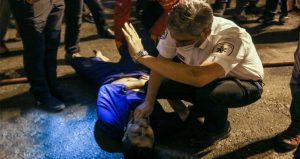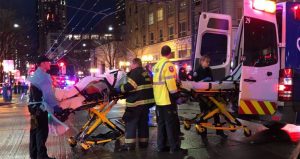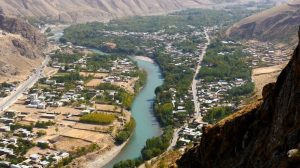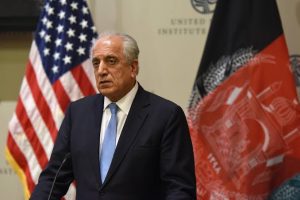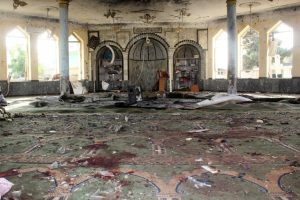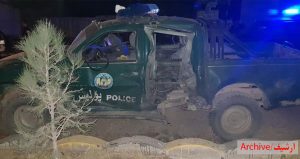Saudi Arabia is trying to reshape its role in the Arab World

Saudi Arabia is a nation at a turning point. From wealth based on natural resources, to wealth based on economic production. From investing in the education of its youth, to reaping the rewards of that investment, as young graduates return to build their country stronger and more resilient than it was before.
Perhaps most significantly, Saudi Arabia is a country transitioning from being a net importer of knowledge and skills and expertise, to becoming an exporter of knowledge, and a source of expertise from which the region, the Muslim world and the entire globe can benefit.
The stakes are high. As the largest Arab economy in the centre of a troubled region, the kingdom has a huge role to play in creating a better world for its own citizens and for humanity at large.
Three collaborations with the Bill & Melinda Gates Foundation provide good examples of how the kingdom is stepping up to this role.
First, scientific research to discover new vaccines for diseases that threaten humanity at large. At the top of the list are Ebola, Zika and MERS. All three are a risk to Saudi Arabia due to the large movement of people in and out of the country, but MERS is of particular local concern, as the majority of cases worldwide have occurred in the kingdom.
The good news is that Saudi Arabia is developing advanced research capabilities, particularly for MERS, both in the Ministry of Health and the King Abdulaziz City for Science and Technology (KACST). They are collaborating with a global effort to coordinate research so that new vaccines can be produced as quickly as possible. While this effort is global, some of the research will take place in Saudi Arabia itself.
Second, the kingdom is stepping up to combat a set of Neglected Tropical Diseases (NTDs), which are a growing menace in the Middle East. Unlike MERS, effective treatments for these diseases do exist, but we need to be much smarter about tackling how they move through the human population and how we stop them. Leishmaniasis and Dengue Fever are just two NTDs with high prevalence in Syria, Yemen and the Horn of Africa. As a result, they are turning up more and more often in Saudi Arabia itself.
Thankfully, in the national labs of Riyadh, the kingdom’s Ministry of Health is supporting a new research centre to track and combat these diseases, led by Dr Waleed Al Salem, a Saudi expert who has recently returned from a research position in the UK. The research centre will be the first of its kind in the whole region, and will help protect Saudi Arabia and surrounding countries from highly contagious diseases.
On a much larger scale, Saudi Arabia is linking up with international development institutions to deliver health improvements to the wider Muslim world, which is home to 40 percent of those living in absolute poverty. That’s about 300 million people who live on less than $1.90 per day.
This population suffers from bad health and is afflicted by many diseases that are just a memory for wealthier countries; diseases like malaria, polio and tuberculosis. Its continued poverty holds back the entire Muslim world from developing and progressing.
To face this challenge, two of the kingdom’s leading development institutions stand at the centre of the Lives and Livelihoods Fund, an innovative mechanism that provides grants and loans to the 30 poorest countries in the Muslim world.
At $2.5bn, the Lives and Livelihoods Fund is the largest multilateral development initiative in the Middle East, and since launching last year, has committed $600m to projects in 11 countries, much of it in the field of healthcare.
The fund is chaired in its first year of operations by the King Salman Humanitarian Aid and Relief Centre (KSRelief), which provides grants from the Saudi government to those in need. In that role, the fund’s current chairman Maher Al Hadrawi is leading a set of powerful and committed donors that includes the Qatar Fund for Development, the Abu Dhabi Fund for Development, the Islamic Solidarity Fund for Development and the Bill & Melinda Gates Foundation. Meanwhile, the Lives and Livelihoods Fund management, and loan capital, is provided by the Islamic Development Bank, a Jeddah-based organisation that manages contributions from every Muslim country.
Just a month ago, I had the pleasure of joining a visit to Senegal with all these partners, where we followed up on the anti-malaria campaign that the Lives and Livelihoods Fund is providing there. We met with the families benefitting from the programme, the hardworking Senegalese officials leading the work, and the Minister of Health herself, who described how her country is on the point of finally defeating malaria, thanks to collaboration with donors from fellow Muslim countries and elsewhere.
These three initiatives — innovation to create a vaccine for MERS, a centre to control tropical diseases in Saudi Arabia and nearby countries and a fund to improve health and development across the Muslim world — all demonstrate in concrete terms how Saudi Arabia is transforming itself from an importer of expertise into an exporter of knowledge, skills and hope.

